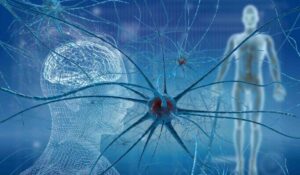Resource Library
Neurology & Vestibular Therapy Specialists

Causes of Dysequilibrium and Dizziness: Vestibulopathy
‘Vestibulopathy’ refers to a disorder of the vestibular system. We use 3 systems to gather information about our body position and the world: Vision, Vestibular, and Somatosensory. So, the vestibular system is one of three pillars keeping us balanced. The vestibular system is located in the inner ear and acts as our body’s gyroscope so

Causes of Dysequilibrium and Dizziness: Medications
If you read the package insert of just about every medication, dizziness is likely listed as a side-effect. However, there are medications that are more commonly known to cause falls, dysequilibrium, and dizziness. In fact, it has been found that taking 5+ medications increase a person’s risk of falling, and for elderly to fall and

Causes of Dysequilibrium and Dizziness: Orthostatic Hypotension
Also called ‘postural hypotension’, orthostatic hypotension occurs when a person transfers from lying to sitting, or sitting to standing, and is a sudden drop (within 3 minutes of standing) in blood pressure (BP) causing the person to feel lightheaded, or even faint. It may also occur after 3 minutes. Causes of Orthostatic Hypotension Per Ringer

Balance & Fall Prevention Treatments
Our bodies use many sytems working together to maintain our balance. We use our vestibular system (inner ear), eye sight, and our joint sensations called proprioception (mostly from our ankles, knees and hips). So, the ankles, eyes and inners ears send messages to the brain. The brain takes the available information and creates a plan

How Is My Ear Involved With Balance & Dizziness?
The ear is a remarkably complex organ, playing a crucial role not only in hearing but also in maintaining our balance. Comprised of the outer, middle, and inner ear, this intricate system includes the Cochlea for hearing and the Vestibular System for balance. The Vestibular System, located in the inner ear, detects head movements and

Balance Training Simplified
Every object has a ‘Center of Gravity’. This is where the average weight of any object (including people) is located. When we balance, we have to keep our center of gravity supported. That is to say, we have to ‘hold up’ our weight! Whatever is holding up your weight is called your ‘Base of Support’.If
- Bárány Society
- Neuro-Optometric Rehabilitation Association
- World Physiotherapy – INPA – Vestibular Special Interest Group
- APTA – Vestibular Interest Group
- Find A Vestibular Rehabilitation Specialist
